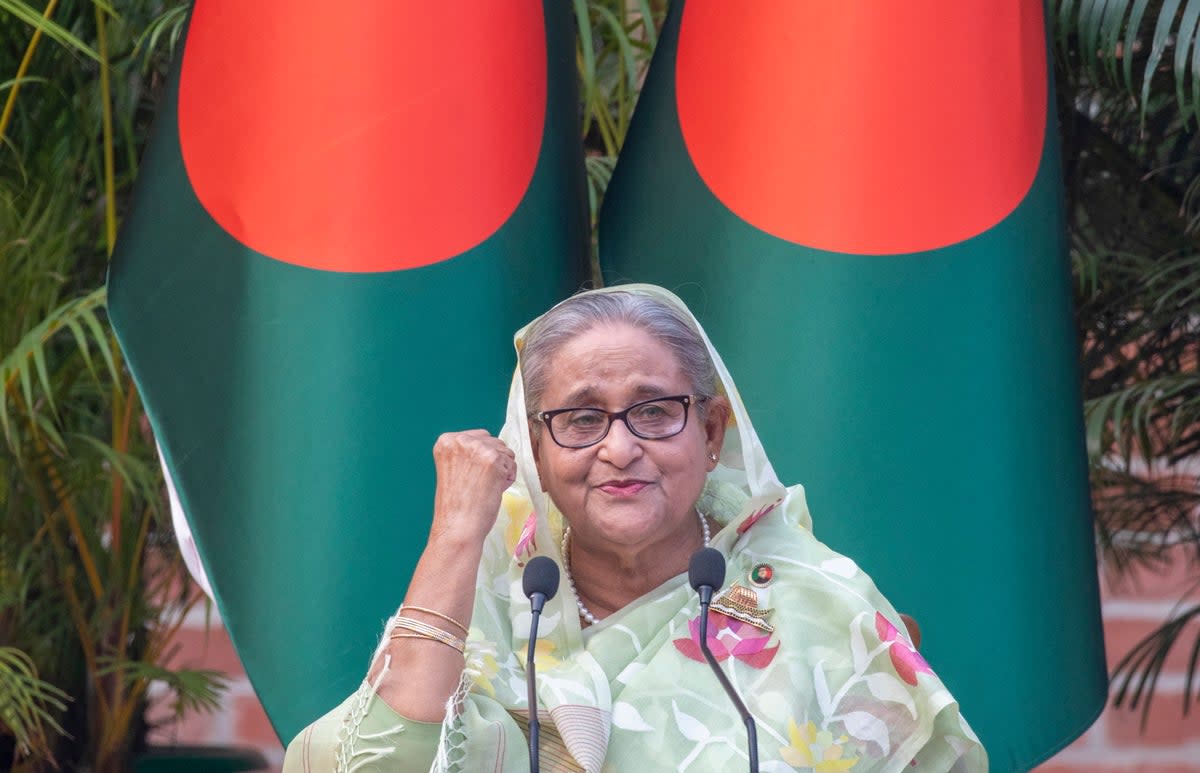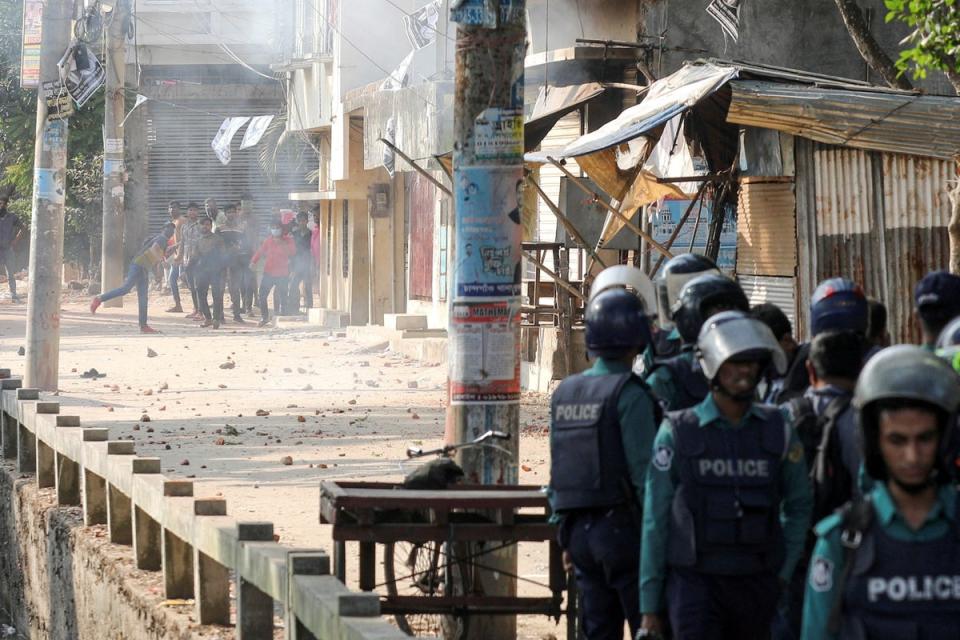UK and US say Bangladesh election was not free and fair

- Oops!Something went wrong.Please try again later.
The UK and the US have raised an alarm over the conduct of the 12th general election in Bangladesh, saying it was not credible, free, and fair.
Sheikh Hasina was elected Bangladesh’s prime minister for a fifth time on Sunday in a virtually opposition-less election marred by violence.
Her Awami League party secured three-quarters of the seats in the 300-member parliament. Independent candidates took 62, the Jatiya Party – the third largest – took 11, and three smaller parties got three seats.
Several members of the ruling party were allegedly fielded as "dummy" independent candidates in the election in a show of false participation and fairness. Ms Hasina’s main rival, the Bangladesh Nationalist Party (BNP) led by jailed former prime minister Khaleda Zia, boycotted the general elections, saying that it would be a futile and unfair exercise under her administration.
Critics of the government raised an alarm over the country’s slide into authoritarianism, crackdown on opposition parties, and the constant effort to throttle dissent through arbitrary detention and unchecked political violence.
Nearly 25,000 members of the BNP have been arrested since rallies against the government turned deadly with at least 14 people killed since mid-2023.

"The United States remains concerned by the arrests of thousands of political opposition members and by reports of irregularities on elections day," State Department spokesperson Mathew Miller said.
"The United States shares the view with other observers that these elections were not free or fair and we regret that not all parties participated."
He added: "We encourage the government of Bangladesh to credibly investigate reports of violence and to hold perpetrators accountable."
We support the people of Bangladesh and their right to choose their leaders in free and fair elections. We share the view with other observers that these elections were not free or fair, and we condemn violence that took place during elections and in the months leading up to it.
— Matthew Miller (@StateDeptSpox) January 8, 2024
Washington, one of Dhaka's largest trading partners, reacted strongly to Dhaka's domestic political crisis by announcing visa restrictions against the country’s officials for “undermining the democratic election process”.
The UK on Monday said Dhaka did not meet the standards of conducting a free election, citing acts of intimidation and violence that took place in the run-up to the 7 January polls.
"Democratic elections depend on credible, open, and fair competition. Respect for human rights, rule of law and due process are essential elements of the democratic process. These standards were not consistently met during the election period," the British government's foreign office said in a statement.
"We are concerned at the significant number of arrests of opposition party members before polling day," the statement added.
Sunday's election saw just 41.8 per cent of the 119.6 million eligible voters turn out to cast their ballot, compared with over 80 per cent in the last election in 2018.
At least 18 arson attacks preceded the vote, including four deaths in an arson attack on a passenger train on Friday. On election day, a supporter of an Awami League candidate was stabbed to death in Munshiganj district near the capital, Dhaka, officials said.
A journalist sustained injuries after being assaulted by members of the ruling party for documenting alleged vote rigging.
The 76-year-old daughter of the country's founding father, Sheikh Mujibur Rahman, first became prime minister in 1996. This will be her fourth consecutive term in office.
"The election was free and fair," she told reporters, playing down the opposition boycott. "Each political party has right to take decision, absence of one party in election does not mean democracy is absent," she added.
A group of foreign observers suggested that the election was "held peacefully and with the participation of the common people". Canada issued a clarification that it had not deployed any election observers to monitor the polls.
"Any individual who identifies as a Canadian observer is acting independently. Their views have not been endorsed by the Government of Canada," the Canadian high commission said in a post on X, formerly Twitter.
The Government of Canada has not deployed any election observers to monitor Bangladesh's January 7 national election. Any individual who identifies as a Canadian observer is acting independently. Their views have not been endorsed by the Government of Canada.
— Canada in Bangladesh (@CanHCBangladesh) January 8, 2024
India, Russia and China – three key allies of Hasina – were some of the first nations to congratulate the leader on her victory.
“I also congratulate the people of Bangladesh for the successful conduct of elections,” India’s prime minister Narendra Modi said. “We are committed to further strengthen our enduring and people-centric partnership with Bangladesh.”
Spoke to Prime Minister Sheikh Hasina and congratulated her on her victory for a historic fourth consecutive term in the Parliamentary elections. I also congratulate the people of Bangladesh for the successful conduct of elections. We are committed to further strengthen our…
— Narendra Modi (@narendramodi) January 8, 2024
Beijing’s ambassador Yao Wen praised a “long-established friendship” with Dhaka in a statement.
“We demand the immediate cancellation of the dummy election, resignation of Hasina and formation of a non-party neutral government for holding a fresh election,” senior BNP leader Abdul Moyeen Khan said.

